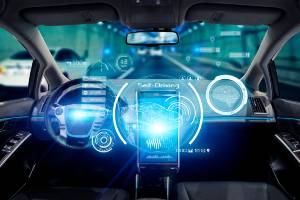Have Self-Driving Cars Become Safer Than Cars Driven by People?
 It may seem inevitable that cars driven by human beings will be phased out and replaced by self-driving vehicles. How quickly will this happen? That depends on many factors, particularly how safe self-driving cars are.
It may seem inevitable that cars driven by human beings will be phased out and replaced by self-driving vehicles. How quickly will this happen? That depends on many factors, particularly how safe self-driving cars are.
The goal with self-driving vehicles is to make them not just as safe as, but safer than cars driven by people. Unfortunately, drivers are not that safe, as they are prone to distractions, drowsy driving, drunk driving, texting, speeding and other forms of negligence or recklessness.
Below, learn more about how safe self-driving cars have become, not just how well they sense and avoid hazards, but also the risks that still need to be addressed.
What Does the Research Say?
By 2018, self-driving cars had already gone through millions of miles of road tests. These tests have shown there is great potential for self-driving vehicles to be safer than cars driven by human beings.
The idea behind these automated vehicles is that they are intended to avoid the mistakes and recklessness of human drivers, such as disobeying traffic laws, speeding or drifting out of a lane. Some research has shown self-driving cars do a good job detecting other vehicles and obstacles.
However, self-driving vehicles often struggle to detect pedestrians. Weather conditions also present added difficulty for safety. Heavy rainfall, snowfall, ice and other inclement weather cause major problems with self-driving vehicle sensors. It is fair to say that a self-driving car in Minnesota would not be as safe as one in Texas just based on weather. Unfortunately, it can be easy to fool self-driving cars, possibly resulting in a dangerous crash.
Tesla Autopilot Accidents
While there are no fully autonomous vehicles on our nation’s roads, some Tesla models have an Autopilot feature that makes them semi-autonomous. In some ways, semi-autonomous is even more dangerous than fully autonomous technology. Driver’s get a false sense of security and do not pay attention. Unfortunately, as of January 2020, there had been three fatal crashes involving Tesla vehicles with the Autopilot feature engaged. For example, in March 2019, a Tesla Model 3 crashed into a truck towing a trailer and the roof of the car was sheared off. Neither the driver nor the Autopilot took action to try to avoid the crash.
AAA Study
Many vehicle manufacturers besides Tesla have active driver assistance systems that manage acceleration, braking and steering. A study recently released by AAA found these systems experienced some type of problem every eight miles, such as:
- Trouble staying in the same lane (this accounted for about three-quarters of the errors)
- Drifting too close to vehicles
- Drifting too close to guardrails
- Disengaging with little notice
Researchers studied 4,000 miles of real world driving to determine what the problems were. The vehicles included in the study were:
- 2019 BMW X7 with Active Driving Assistant Professional
- 2019 Cadillac CT6 with Super Cruise
- 2019 Ford Edge with Ford Co-Pilot360
- 2020 Kia Telluride with Highway Driving Assist
- 2020 Subaru Outback with EyeSight Suite
Who can be Held Liable for a Self-Driving Car Crash?
As there are no fully autonomous vehicles on the road, the more relevant question is whether a vehicle manufacturer can be held liable for problems with features that assist drivers. While each situation is unique, it may be difficult to hold a manufacturer liable, as drivers are still supposed to be paying attention, even while autonomous features are engaged. One of the biggest issues with the current state of “self-driving” cars is that they do not actually self-drive. Maybe they assist, but when the driver has a false sense of autonomy, the driver does not pay attention and crashes happen. There are many videos of drivers sleeping or watching a movie in a “self-driving” car. Until vehicles are 100 percent truly self-driving, the drivers need to pay attention as if there they were driving a regular vehicle.
If you were injured in a crash while autonomous features were engaged, you should strongly consider meeting with an experienced Bloomington car accident attorney to discuss legal options. We know how to determine liability and whether you may have a valid claim.
Call Today to Schedule a Free Legal Consultation
If you or a loved one was injured in a car crash, you could greatly benefit from talking to a licensed attorney about your potential legal options. The attorneys at TSR Injury Law have obtained millions in compensation on behalf of car crash victims.
The consultation with one of our licensed attorneys is completely free of charge, with no obligation for you to hire our firm. If we find you have a valid case and you hire us to represent you, there are no upfront fees for our services. We do not get paid unless you get paid. That means there is no risk in contacting us to discuss your crash.
Have questions? Call (612) TSR-TIME today.



